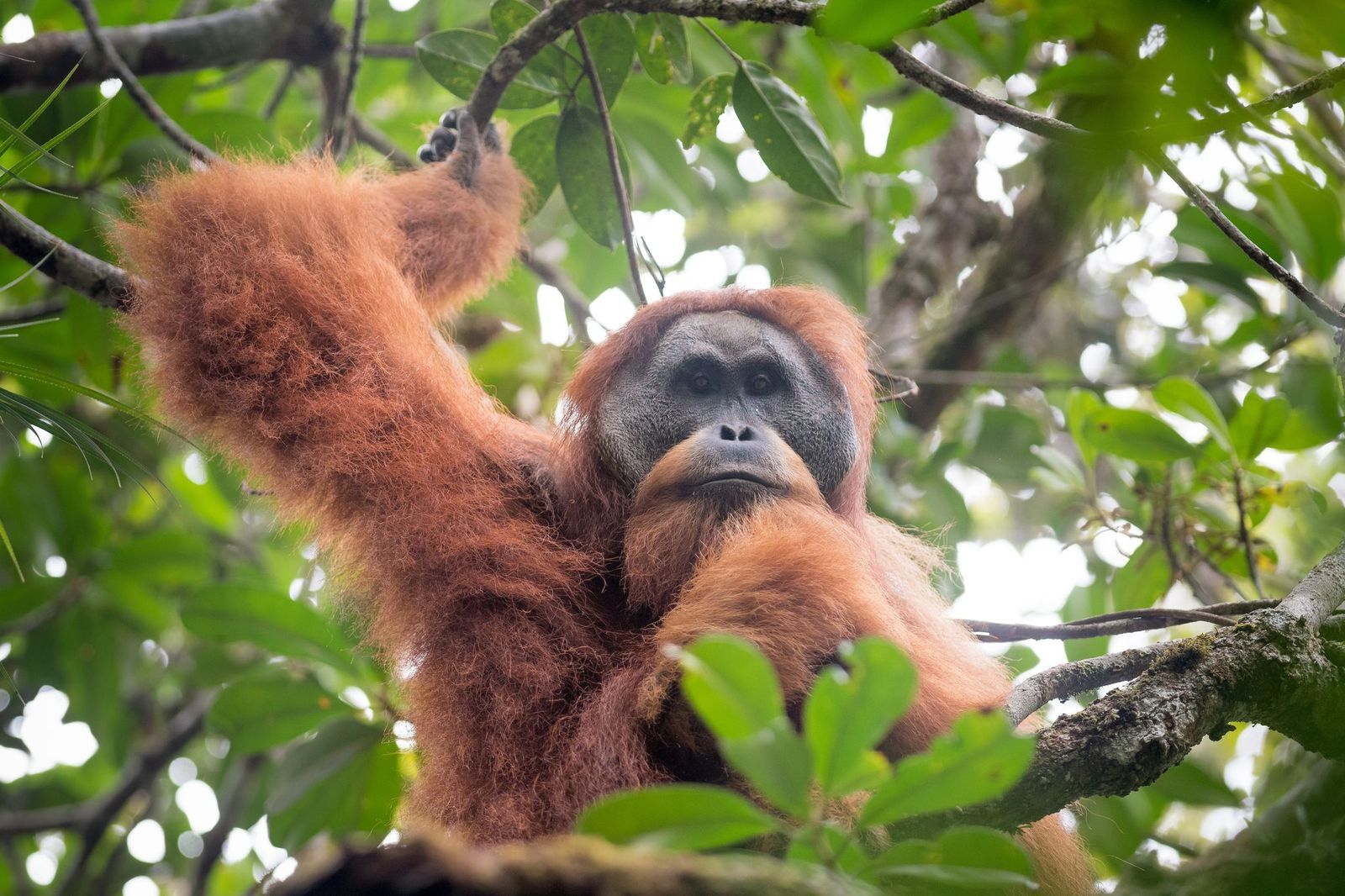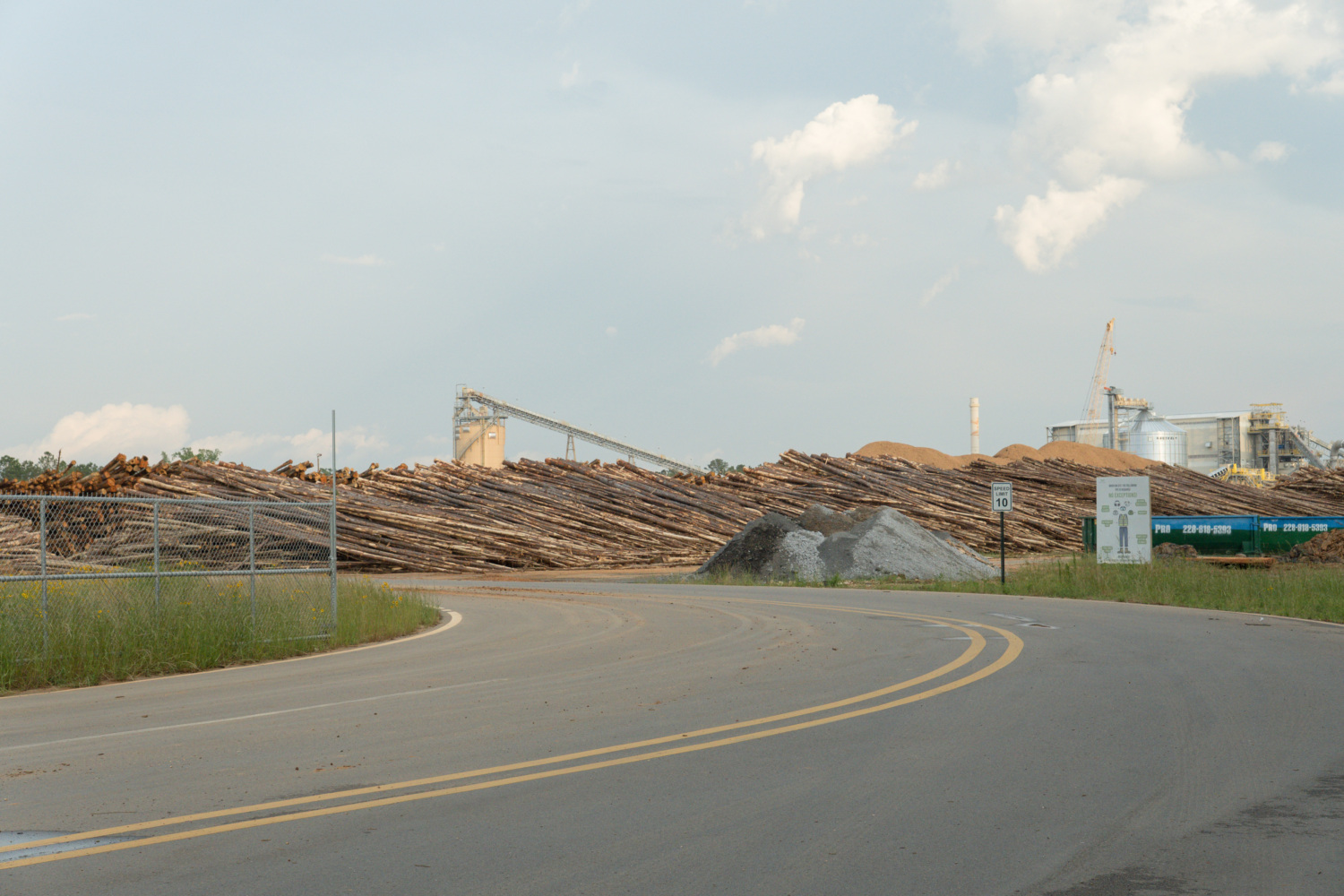
Leading scientists, international NGOs and Scottish environmental groups urge ministers to act to save world’s rarest great ape
A global coalition led by Mighty Earth has sent an open letter to the Scottish Government calling for a dam project in Indonesia to be halted to protect the Tapanuli orangutan
[embedyt] https://www.youtube.com/watch?v=O4nQN92-18c[/embedyt]
Mighty Earth and more than 20 Indonesian, Scottish and international NGOs are today calling on the Scottish Government to convene a meeting between conservationists and SDIC, the Chinese corporation currently building the controversial Batang Toru dam in northern Sumatra. SDIC Power owns and operates windfarms in Scotland through a wholly-owned subsidiary, Red Rock Power. The construction of the dam threatens the habitat and survival of the critically endangered Tapanuli orangutan, the world’s rarest ape, only discovered in 2017 and numbering fewer than 800.
An open letter, sent to the Scottish Government today, led by Mighty Earth, and signed by NGOs from Indonesia, Scotland and beyond, plus leading orangutan conservation experts, calls for a moratorium on construction of the project. The same richly diverse ecosystem it puts at risk is also home to other threatened primates, as well as critically endangered and vulnerable species like the Sumatran tiger, pangolins, tapirs and sun bears.
The letter also outlines the intimidation tactics used against those in Indonesia who oppose the project – one environmental lawyer has died under suspicious circumstances [3], while a public discussion about the project was violently disrupted. Copies have been sent to Lorna Slater MSP, whose portfolio includes biodiversity, and to the Chinese developers plus its Edinburgh-based subsidiary.
Amanda Horowitz, Senior Director at Mighty Earth, said:
“The Tapanuli orangutan’s home in the forests of Batang Toru in Sumatra is being destroyed by the construction of a wholly unnecessary and toxic dam project, which has also proved to be a danger to the local community and to workers. Calls for action are coming from across the globe and unlikely as it may seem, the Scottish Government is well placed to do its bit and convene a meeting as soon as possible between the developers and international conservation scientists. The threat is urgent and there is no time to lose if we’re to save a species, some of our closest relatives, from being wiped off the face of the Earth.”
Monica Lennon MSP, who has taken an interest in this issue, said:
“Scotland is a key player in international development and this is a test case for our role on the global stage. Does this country champion biodiversity, environmental rights and workers’ safety, as we would like to think? Scottish Ministers may not be able stop this project outright, but the fact that the dam‘s developers operate in Scotland gives us a rare opportunity to use a little “soft power” in defence of workers’ rights, stopping ecocide and the survival of the world’s most endangered great ape.”
Andi Muttaqien, of Indonesian NGO Satya Bumi, said:
“Who benefits from the Batang Toru dam? Clearly not the Tapanuli orangutan, whose habitat is under threat. Not the local communities, who were promised employment and a reasonable price for their farmland, promises that have not been kept. Instead they are threatened by earthquakes on the Sumatran Fault, and by deadly mudslides that have already claimed the lives of locals and workers. The dam’s electricity might have been needed in 2015, but now, 8 years into construction, there is oversupply in the region, with the electricity slated to be sold at an overinflated price. At the same time, public debate and campaigning on these issues is hindered here in Indonesia.”
Serge Wich, Professor of Primate Biology at Liverpool John Moores University, said:
“The Tapanuli orangutan was only identified in 2017, but it has been estimated that the population has already halved since the 1980s. Now, there are fewer than 800 left and that is an estimate from more than 10 years ago so numbers are likely lower now due to the development of the hydro power dam and other activities in the area. If the adult population decreases by more than 1% per year—that’s fewer than 8 individuals—the genetic diversity could decline to the point of no return. So we really need to halt any development in the area to avoid further losses.”


